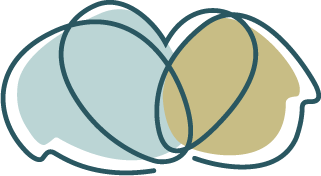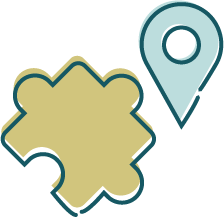

Have questions? We're here to help!
Need immediate help?
Are you experiencing a crisis or in need of immediate support? While our organization cannot provide 24/7 assistance, there are emergency resources available to help you at any time.
In case of immediate danger: Call 911 without delay.
Crisis Intervention Line (Info-Social): 811 option 2 – Mental health professionals available 24/7.
Montreal Suicide Prevention Center: 1-866-277-3553 (1-866-APPELLE) or text 535353 – 24/7 support for individuals in distress and their loved ones.
Kids Help Phone: 1-800-668-6868 or text 686868 – 24/7 service for youth.
Tel-Aide: 514-935-1101 – Free, anonymous, and confidential support, 365 days a year, from 7am to 11pm.
SOS Domestic Violence: 1-800-363-9010 – For victims of domestic violence or their loved ones, available 24/7.
Navigating a family transition can be both an emotional and logistical challenge. Whether it’s a divorce, separation, or a shift in family circumstances, each family experiences these moments in its own way.
This section is designed to support you by offering clear information and resources tailored to your needs. You’ll find informative articles and links to organizations and specialized services to help you better understand your situation and find the support you need. Remember, you’re not alone.
Perspective Famille offers psychosocial support services aimed at assisting individuals through daily challenges and transitional periods. This approach focuses on active listening and personalized support, providing a safe and caring space to share concerns.
Our professionals are trained to help explore practical solutions tailored to individual needs. Whether dealing with difficult situations, understanding emotions, or strengthening coping skills, psychosocial support is an accessible and practical way to enhance well-being and quality of life.
What is it?
“A psychological treatment for a mental disorder, behavioral issues, or any other problem causing psychological suffering or distress. Its purpose is to foster significant changes in the client’s cognitive, emotional, or behavioral functioning, interpersonal system, personality, or state of health. This treatment goes beyond general support or counseling.”
Why seek it?
It can be helpful for those experiencing difficult times such as depression, anxiety, or trauma. The goal is to better understand thoughts and emotions and find ways to improve overall well-being.
What techniques are used?
Techniques may include cognitive-behavioral therapy (CBT), psychodynamic therapy, and other clinical approaches. Sessions are typically structured and include assessments and interventions suited to the individual’s needs.
How long does it last?
Psychotherapy duration varies and may last from several months to several years, depending on the complexity of the issues.
What is it?
Psychosocial support is a guidance approach that assists individuals during life challenges or emotional crises. Unlike psychotherapy, it focuses more on listening and practical support.
Why seek it?
This form of support is well suited for those facing everyday issues like family conflicts, relationship problems, transitions, or difficult emotions such as stress, anxiety, or sadness. It offers quick and accessible aid without requiring a mental health diagnosis.
What techniques are used?
A trained and qualified professional creates a trusted environment through active listening, emotional validation, and various intervention types. They help express concerns, explore solutions, and develop strategies to manage daily challenges.
How long does it last?
Session length and frequency vary. Some are one-time meetings for immediate situations, while others span several sessions, depending on individual needs.
Psychotherapy and psychosocial support are complementary approaches serving different needs. The former is a therapeutic intervention offered by a licensed professional, such as a psychologist or psychotherapist. The latter focuses on immediate support for life challenges and is provided by professionals in social work, criminology, sexology, psychoeducation, and more. Both can be beneficial depending on individual circumstances and needs.






Duvernay, Saint-François, Saint-Vincent-de-Paul
Pont-Viau, Renaud-Coursol, Laval-des-Rapides
Chomedey
Sainte-Dorothée, Laval-Ouest, les Îles-Laval, Fabreville-Ouest, Laval-sur-le-lac
Vimont, Auteuil
Referral through the JED social worker
Referral through the JED social worker.
This program serves families of children ages 0 to 12 who continue to experience neglect despite receiving services. These families may have received or be receiving services from CSSS, Youth Centers, or community organizations, and require more intensive support.
This program offers:
Via:
Eligibility criteria:
Service Offer:
Walk-in hours:
Referral through the JED social worker.
Check out our Frequently Asked Questions to learn more about our services, workshops, and available resources for you and your family.
View the FAQ1971 - © Perspective Famille